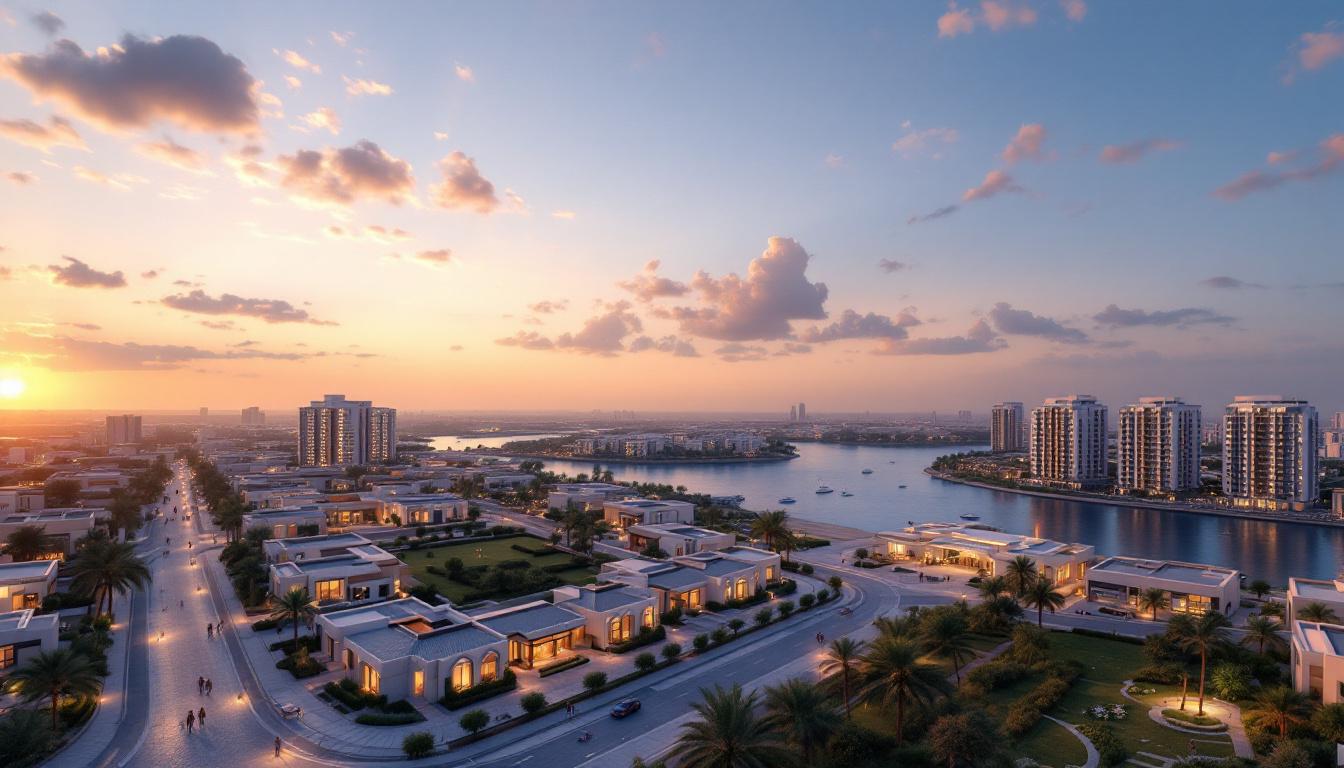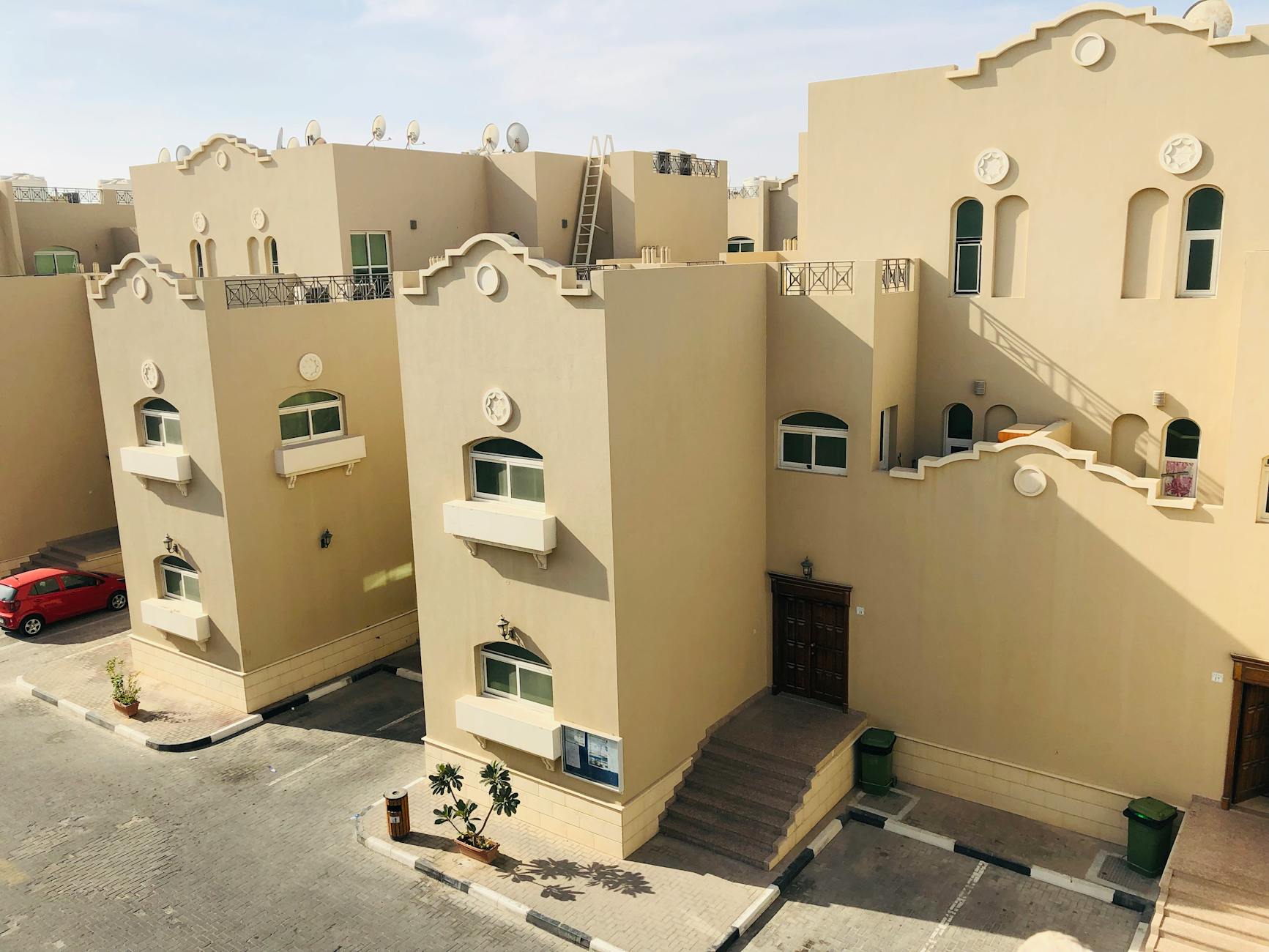Living in Abu Dhabi in 2025: The Complete Expat Guide to Costs, Housing and Life

Abu Dhabi just marked a 34% jump in trade this August, and it’s now ranked as the world’s top expat-friendly city for 2025, thanks to zero income tax, trusted government policies, and an enviable reputation for safety and quality of life. If you’re thinking about relocating or simply want to know what daily life here is really like, you’re in the right place.
In this guide, you’ll get the facts on cost of living, housing, practical visa steps, and how the local culture shapes everything from work routines to family life. Real budget numbers, up-to-date relocation advice, and family-friendly insights—all tailored for 2025—will help you make clear decisions and feel confident about your move. For the latest news and expat headlines, check the August 9, 2025 UAE business, weather and lifestyle updates.
If comparing the region, see how Abu Dhabi’s costs measure up in our cost of living in the Middle East breakdown. Whether you’re moving for your career, your family, or the city’s vibrant lifestyle, this guide gives you the clarity you need.
For a quick video intro, watch this YouTube overview on expat life in Abu Dhabi vs. Dubai.
Why Choose Abu Dhabi?
Abu Dhabi stands out for expats seeking strong career opportunities, a safe and welcoming environment, and a lifestyle that caters to families and ambitious professionals alike. When considering a move, it’s not just about the city’s shiny skyscrapers or glamorous beaches, but the daily advantage of better salaries, trusted security, and the chance to put down roots long-term. Here, your savings can stretch, your children can thrive, and your career can reach new heights without sacrificing work-life balance.
Job Market and Career Prospects
Abu Dhabi is at the heart of the UAE’s economic strength. As the capital, it attracts some of the largest investments and offers a robust job market in 2025. The city’s top sectors include:
- Energy and Petrochemicals: Still a powerhouse, with ADNOC’s influence and regular hiring for engineers, project managers, and environmental experts.
- Financial Services: Global banks and local champions create openings for bankers, analysts, compliance, and risk professionals.
- Technology: With the UAE’s smart city push, IT professionals, data scientists, and cybersecurity experts are in high demand.
- Healthcare: Major hospitals such as Cleveland Clinic Abu Dhabi are magnets for skilled medical professionals and management staff.
- Education: International schools and universities recruit well-qualified teachers, curriculum leaders, and academic administrators.
Average professional salaries sit between AED 21,000 and AED 24,000 per month. Senior roles or those in executive management often exceed this range. With zero personal income tax, your net take-home can rival that of major Western cities, especially once you factor in lower tax deductions.
To give perspective, according to Numbeo’s latest figures, a single person’s monthly expenses (not including rent) hover around AED 3,500–4,000, while a family of four averages AED 12,500 per month. This means that a professional earning in the standard range can cover their daily expenses comfortably and, with smart budgeting, save meaningfully.
If you’re curious how lifestyles compare across the Middle East, our cost of living in the Middle East guide puts Abu Dhabi’s spending power and job prospects in context.
Safety, Quality of Life and Golden Visa
 Photo by Mohamed Zarandah
Photo by Mohamed Zarandah
Abu Dhabi consistently ranks as one of the safest cities in the world. Crime rates remain very low, with Numbeo’s 2025 data showing minimal concerns about theft, vandalism, or street crime. Walking outside at night—alone or with children—is the norm, giving daily peace of mind.
The focus on public safety doesn’t stop at surveillance cameras or strict laws. Abu Dhabi invests heavily in modern police services, responsive medical care, and urban planning that’s designed around families. You’ll find playgrounds, community centres, lush parks, and waterfronts that offer safe, open space for everyone.
Expats also enjoy world-class healthcare. Premier hospitals and clinics, many with Western-trained staff, offer advanced treatment and bilingual care. International school options are extensive, and many expat families find the city’s multicultural environment ideal for raising children.
Golden Visa: Pathway to Stability
The UAE Golden Visa is a game-changer for expats who want security for the long term. This long-term residency programme lets qualified professionals, investors, and their families live, work, and study in the UAE for up to 10 years—without the need for a national sponsor or employer tie-in. Key benefits include:
- Renewals up to 10 years
- Freedom to own UAE companies on the mainland
- Sponsor family members, including spouse, children, and household staff
- Access to world-class education and healthcare
Eligibility can be based on salary (commonly AED 30,000–50,000 monthly), property investment, or exceptional talent in fields like science, medicine, or the creative arts. For full details on criteria and application, the UAE Government’s official Golden Visa page is the best starting point.
These advantages combine to make Abu Dhabi a top choice for those seeking a safe, prosperous base to build their future. For ongoing updates about resident policies, economy, and expat trends, see our recent UAE news roundup (26 Aug 2025): updates for residents and businesses.
Cost of Living Breakdown
 Abu Dhabi street-level living: a balance of style, comfort, and everyday accessibility. Image generated by AI.
Abu Dhabi street-level living: a balance of style, comfort, and everyday accessibility. Image generated by AI.
If you’re mapping out a move to Abu Dhabi, knowing the true cost of living will give you a clearer path. The city has a reputation for luxury, but the real monthly outlay depends heavily on your lifestyle and where you choose to rent. Whether you picture yourself in a high-rise downtown or a quiet villa in the suburbs, it’s smart to break down rent, everyday spending, and genuine opportunities to save. Let’s get practical about what it costs to call Abu Dhabi home in 2025.
Housing Costs
Housing is often your biggest regular bill, so it pays to get specific. In Abu Dhabi, rents vary widely based on location, property type, and whether your building offers extras like a pool or gym access.
Typical Rent Ranges (2025)
Property TypeCentral (AED/month)Suburbs (AED/month)1-bedroom apartment5,000 – 7,5003,500 – 5,0002-bedroom apartment7,500 – 10,5005,000 – 7,2003-bedroom villa12,500 – 19,0008,000 – 13,500
High-demand areas: Downtown, Al Reem Island, and Saadiyat generally fetch the highest apartment rents. Go to the outskirts (like Khalifa City or Mohammed Bin Zayed City) if value for space is key.
Lease Terms and Extra Fees
- Lease duration: Most leases run for 12 months. It’s normal to pay the full year’s rent up front via post-dated cheques (not monthly).
- Agency commission: Standard agency fees sit at 5 percent of annual rent (one-time).
- Security deposit: Usually one month’s rent, refundable if you leave the property as found.
- Ejari and contract typing: Registration and contract typing can cost AED 200–500 combined.
- Utilities: Not always included. You must budget separately for electricity, water, and cooling.
Top tip: Use your negotiating power, especially if you’re renewing. Rents have grown, but not at runaway speed in most zones, according to the latest Kredium cost of living report for Abu Dhabi 2025.
Daily Expenses and Savings Potential
Living costs level out once you take housing off the table. Abu Dhabi rewards those who plan, especially if you mix premium treats with local bargains.
Food and Groceries
- Monthly groceries for a single person: AED 750–1,000, or AED 2,500–3,000 for a family of four (based on regular supermarket shopping).
- Dining out: Budget places start at AED 25–40 for a meal, while mid-range restaurants charge around AED 150–250 for two.
- Save by: Shopping at local markets and brands—Lulu Hypermarket and Carrefour’s value ranges deliver savings over imported items.
Utilities and Transport
- Electricity, water, cooling for a 1-bed flat: AED 300–500 monthly, more if you want the aircon running non-stop.
- Mobile and internet: Packages start from AED 250 per month for reliable speed and service.
- Commuting: Public buses are extremely affordable, with monthly passes under AED 100. Taxis are safe and plentiful but costlier for daily commutes (AED 2 per km on average).
Entertainment and Leisure
- Cinema: AED 40–50 per ticket.
- Gym memberships: Range from AED 200–400 monthly, with deals for annual up-front payment.
- Kids’ activities: Soft play or trampoline parks, AED 60–120 per child per session.
How to Boost Your Savings
Small changes add up fast in Abu Dhabi. Making a few local choices can make your budget go further:
- Ride the bus or carpool: The transport network is reliable and cool (literally—air-conditioned). Saves hundreds vs. taxis.
- Cook at home and try local cuisine: It’s both cheaper and a great way to experience the city’s authentic side.
- Limit imported luxuries: Stick to local and regional groceries and avoid premium international brands if saving is your aim.
- Watch for seasonal deals: Schools, gyms, and even restaurants run discounts at quieter times, especially during the hot summer.
For an even deeper dive on daily costs and ways to stay in control, see Kredium’s detailed guide on the cost of living in Abu Dhabi.
These realistic figures help you plan and manage your expectations. Finding the right balance means you can enjoy Abu Dhabi’s advantages—tax-free earnings, quality comforts, and open spaces—without worrying that your overheads will get in the way of your expat adventure.
Housing and Neighborhoods
 Abu Dhabi’s most popular neighbourhoods offer everything from sleek city living to relaxed beachside lifestyles. Image created with AI.
Abu Dhabi’s most popular neighbourhoods offer everything from sleek city living to relaxed beachside lifestyles. Image created with AI.
Finding the right home shapes your entire Abu Dhabi experience. Whether you want a skyline apartment a stone’s throw from work, or a garden villa close to top-tier schools, there is something for everyone. The housing market in 2025 is dynamic, with prices rising and family-friendly communities booming, but with a careful approach, you’ll arrive at a neighbourhood that fits your routine and ambitions.
Rental vs. Buying
With rising demand and limited new supply so far in 2025, rents for both flats and villas have climbed across Abu Dhabi’s top districts. Choosing between renting and buying is more than a numbers game—it shapes your financial outlook and your sense of “home”.
Renting: Flexibility and Ease
Most expats choose to rent. Flexibility, easier relocation, and lower upfront costs are the top appeals. Typical lease terms run for 12 months, with payment via post-dated cheques for the full amount or split across a few instalments. In 2025, standard annual rents are:
- One-bed apartment: AED 85,000–91,000 (city centre, Reem Island, Al Raha Beach)
- Two-bed apartment: AED 127,000–136,000
- Three-bed villa: AED 170,000–185,000 (Reem, Saadiyat, MBZ City)
Renting gets you access to the newest buildings and prime amenities. However, 2025’s tight rental market has pushed year-on-year hikes to double digits in hot spots like Al Reem Island (up 9.2%) and Al Raha (up 11.7%). If your job or life plans may change, renting keeps you nimble.
Buying: Investment and Security
Buying in Abu Dhabi now offers the chance for long-term stability, especially with government incentives for expat buyers. Key benefits:
- Equity growth potential: Residential property prices have held steady in 2025, even as rents rise. This has improved rental yields and made buying more attractive for some investors.
- Golden Visa eligibility: Buy a property valued at AED 2 million or above and you may qualify for the UAE’s 10-year residency.
- Payment plans: Many developers offer structured payment plans for off-plan purchases, easing cash flow pressure.
The city’s price-stabilisation policy introduced this year aims to keep home prices in check despite soaring rents. The cap on certain annual increases offers new buyers extra peace of mind on future costs.
Typical Contract Lengths and Financing Options
- Rental contracts: Usually 1-year fixed, with renewal rights if no default occurs. Early termination means forfeiting deposit.
- Buying: Mortgages available for expats (usually up to 75–80% of property value with major UAE banks). Typical loan tenures range up to 25 years. Some off-plan projects offer post-handover payment plans.
Quick Pros and Cons
Renting Pros:
- Low upfront costs (deposit and furnishing only)
- Flexible if you plan to move easily
- Access to the latest properties
Renting Cons:
- Subject to annual rent increases
- No asset growth over time
Buying Pros:
- Potential for capital appreciation
- Residency security with higher-value properties
- Stable annual cost (no rent rise anxieties)
Buying Cons:
- Higher upfront costs (deposit, fees, furnishing)
- Market entry and exit take time and cost
- Financial risk if you leave Abu Dhabi soon
For more figures and up-to-date statistics, see Numbeo’s Cost of Living in Abu Dhabi and a breakdown of new incentives at What’s On’s 2025 property trends guide.
Best Areas for Families and Professionals
Each neighbourhood in Abu Dhabi brings its own vibe and priorities. Some shine for family life, with parks and top international schools, while others pulse with energy—perfect for ambitious singles or couples.
Family-Focused Neighbourhoods
Al Reem Island and Saadiyat Island have become household names for relocating families. These areas combine comfort, safety, and quick access to education.
- Schools:
- Repton School Abu Dhabi (Al Reem): UK curriculum, known for strong academics
- Sorbonne University Abu Dhabi (Reem): French and English, ideal for expat teens
- Cranleigh Abu Dhabi and The British International School (Saadiyat): High-scoring British curriculum, diverse extra-curricular choices
- Parks and Amenities:
- Reem Central Park: Lush walking routes, kids’ splash pads, cafes, skate park
- Saadiyat Beach Clubs: Blue Flag beaches, family swimming pools, casual dining
- Saadiyat Cultural District: Museums and art spaces for weekend learning and play
- Grocery and Family Life:
- Easily accessible supermarkets and health clinics
- Quiet streets, landscaped pathways perfect for bike rides or strolls
Professional and Single-Friendly Areas
Downtown Abu Dhabi and neighbouring Corniche areas set the pace for city professionals and digital nomads.
- Nightlife and Social Scene:
- Al Maryah Island: High-end bars, rooftop lounges, and gourmet dining at The Galleria
- Corniche: Iconic sunset walks, outdoor cafés, the best clubs and live music venues
- Al Zahiyah: Historic Tourist Club area reinvented with modern apartments and vibrant eateries
- Workspaces and Networking:
- Co-working Hubs: Thrive Space, Regus, Servcorp (all in city centre, minutes from major companies)
- Luxury serviced apartments: Ideal for project managers or entrepreneurs needing a fast move-in without the admin headache
- Transport:
- Metro and bus networks tailored for short city hops
- Easy, secure parking for downtown complexes
Choosing a neighbourhood boils down to priorities: If schools and gardens matter most, Al Reem or Saadiyat stand out as Abu Dhabi’s family-friendly havens. For after-dark energy and networking, the city centre or Al Maryah Island offer the perfect launchpad.
To compare how Abu Dhabi lifestyle and housing choices stack up in the region, review this cost of living in the Middle East guide. For a deep dive into current neighbourhood-level rental trends, What’s On’s 2025 property market summary is well worth a read.
 Elegant villas and green avenues define Abu Dhabi’s popular expat neighbourhoods. Photo by Fotografia de Zaman |•DXB
Elegant villas and green avenues define Abu Dhabi’s popular expat neighbourhoods. Photo by Fotografia de Zaman |•DXB
Healthcare, Education and Family Services
 Healthcare and education shine as pillars of everyday expat life in Abu Dhabi. Image created with AI.
Healthcare and education shine as pillars of everyday expat life in Abu Dhabi. Image created with AI.
A move to Abu Dhabi brings big questions about family wellbeing and your children’s future. Access to quality healthcare and education should give you peace of mind—in fact, these are reasons many families choose Abu Dhabi for their new chapter. Both sectors have focused investments and clear rules, so you can plan ahead with certainty.
Let’s break down what to expect, from medical cover to choosing the right school. This will help you make informed decisions and settle in with confidence.
Healthcare and Insurance
Healthcare is both advanced and accessible in Abu Dhabi, but understanding the rules is key.
Mandatory Health Insurance System
Every resident, including expats and their families, must hold valid health insurance by law. Employers are required to provide coverage for sponsored workers and often their dependents too. If you plan to bring your family, check exactly what your employer’s plan includes, especially for spouses and children.
- Fines apply for gaps in coverage, so don’t risk letting it lapse.
- Standard employer plans usually cover basic GP visits and emergencies, but extras (like specialist care or dentistry) may be limited.
- According to Allianz Care’s UAE healthcare guide, employers in Abu Dhabi are obliged to cover your immediate family as well.
Average Costs for GP Visits
- Without insurance, a routine GP consultation costs AED 250–400.
- Most insurance plans will cover this, leaving you to pay a small co-payment, typically around AED 50–100.
- Many expats choose private polyclinics for fast service, modern facilities, and English-speaking staff.
How to Choose a Private Plan
Some employers offer only the most basic plan. If you want wider coverage or extra benefits, consider “topping up” with a private policy. When reviewing options, compare:
- Annual limit (ideally at least AED 500,000)
- In-patient and out-patient coverage
- Dental and optical add-ons
- Direct billing networks (more clinics, less admin)
- Maternity and pre-existing condition clauses
Compare plans side by side and check reviews before deciding. More information can be found in expat-specific guides such as this overview of expat health insurance in the UAE.
Quick tips:
- Carry your health insurance card at all times; you’ll need it at clinics and hospitals.
- Emergency care is swift, but for minor issues, use telehealth services or book an appointment in advance.
- Most pharmacies are open seven days a week.
International Schools and Tuition
Schooling is often the top reason families choose certain areas in Abu Dhabi. The choice of international schools is wide, with a mix of British, American, IB, and other curriculums in modern campuses. However, fees can be a shock for newcomers, so plan ahead.
Tuition Bands for 2025
Here’s a quick overview of typical annual tuition ranges:
LevelTuition (AED/year)Nursery/Pre-K22,000 – 52,000Primary32,000 – 63,000Secondary45,000 – 90,000
- Top-tier “flagship” schools (e.g., Cranleigh, British International School) sit at the higher end, with state-of-the-art facilities.
- Mid-range schools still offer strong academics and good campus infrastructure.
Enrolment Timelines and Advice
- Applications open as early as October for the following September intake, but some premium schools have year-round rolling admissions if spaces open up.
- Waitlists are not uncommon, especially for sought-after British and IB schools.
- Prepare documents: child’s current/transcripts, passport copy, visa or Emirates ID, immunisation record, and school reports.
- Assessments or interviews are often required, so review the relevant entry requirements before applying.
Scholarship and Fee Discount Opportunities
Scholarships for international expat families are limited but available in certain schools, focusing on academic, sports or arts excellence. Some schools offer sibling discounts (5–15 percent) and early payment savings. Check individual school websites or contact admissions teams to ask about current offers.
If you are comparing across the region, the cost of living in the Middle East guide gives you a sense of where Abu Dhabi school fees stand relative to other cities.
Quick checklist for families:
- Narrow down to 2–3 schools that fit your curriculum and budget preferences.
- Visit the campuses in person or attend virtual open days before finalising enrolment.
- Get your paperwork organised early to avoid delays during peak admissions season.
- For a comparison with the Dubai school scene, see our insights on expat life in Dubai.
Finding the right doctor, school, and support services is easier once you understand how the systems work. Abu Dhabi takes pride in easy access and high standards, aiming to support healthy, ambitious families as part of its social fabric.
Culture, Lifestyle and Social Life
 Abu Dhabi’s spirit thrives in its blend of tradition and modern lifestyle. Image created with AI.
Abu Dhabi’s spirit thrives in its blend of tradition and modern lifestyle. Image created with AI.
Life in Abu Dhabi offers more than luxury cityscapes and economic growth. If you look beneath the surface, you’ll see a culture built on warmth, genuine hospitality, and strong community ties. People from all walks of life find ways to connect, often blending global influences with deep local traditions. Knowing the basics of etiquette and social life helps you avoid awkwardness and fit in quickly. Expats who respect the pace and customs of the city find it easier to make friends and build memorable experiences.
Cultural Norms and Everyday Etiquette: Dress Codes, Behaviour, and Islamic Customs
Newcomers find Abu Dhabi remarkably welcoming, yet daily life is built on respect for local values—especially Islamic customs. While the city feels modern and cosmopolitan, understanding the local approach to dress, manners, and public conduct avoids trouble and opens doors.
Dress Codes:
- In malls, public buildings, and government offices, cover shoulders and knees. Avoid revealing clothes out of respect.
- Swimwear is fine at beaches and hotel pools, but bring a cover-up for public spaces.
- Men should avoid walking shirtless outside pool or gym areas.
Public Behaviour:
- Displays of affection (kissing, hugging) are best kept private.
- Swearing, rude gestures, or aggressive arguments may result in police warnings.
- Always address elders with respect and use titles when possible.
Respect for Islamic Customs:
- The call to prayer punctuates the city’s rhythm. Many shops and businesses close briefly during these times.
- Friday is the holy day. Expect a slower start, with most offices and malls opening later than usual.
- Alcohol is limited to licensed venues. Never drink in the street or public parks.
Ramadan Guidelines for Non-Muslims:
The Holy Month of Ramadan transforms daily life in Abu Dhabi. You’ll notice a quieter city, changed opening hours, and a deeper sense of reflection and generosity. Non-Muslims are not required to fast, but public behaviour must shift:
- Avoid eating, drinking (even water), chewing gum, or smoking in public between sunrise and sunset.
- Many restaurants offer screened-off dining or takeaway.
- Dress extra modestly out of respect during this period.
- Join in: Many expats are invited to iftar (evening meals that break the fast). It’s a great way to deepen your cultural understanding.
For an in-depth look at Ramadan etiquette in Abu Dhabi, check out the official UAE Government Ramadan guide. For tips specifically geared towards new expats, see this expat’s guide to Ramadan in Abu Dhabi.
Leisure, Sports and Community: Weekend Activities and Expat Social Life
 Weekends in Abu Dhabi mix outdoor adventure, cultural events, and true community spirit. Image created with AI.
Weekends in Abu Dhabi mix outdoor adventure, cultural events, and true community spirit. Image created with AI.
When the weekend rolls around, Abu Dhabi offers plenty of ways to relax or get active. Whether your vibe is brunching, beach volleyball, or soaking in local art, there’s a scene for everyone—and making friends is easier than you might think.
Popular Weekend Activities:
- Kayaking in the Mangroves, paddle-boarding, or jet skiing off Saadiyat Beach.
- Desert safaris for dune bashing, camel rides, and stargazing.
- Family picnics at parks like Umm Al Emarat or Reem Central.
- Mall-hopping (Yas Mall, Galleria), with cinemas, family zones, and gourmet food courts.
- Art and culture at Manarat Al Saadiyat and Louvre Abu Dhabi.
Active and Social Clubs:
- Abu Dhabi Corniche hosts runners, cyclists, and organised fitness bootcamps most mornings.
- Join sports leagues in football, cricket, or tennis.
- Yoga and Pilates studios hold group classes designed for expats.
- Various meetups: chess clubs, photography groups, book clubs advertised through platforms like Meetup and Facebook.
How to Meet New People:
- Expat networks host regular social mixers, coffee mornings, and newcomers’ nights.
- Join your country-specific association or volunteer for charity events—a good way to quickly form meaningful connections.
- Community fairs and food festivals, especially during cooler months.
- Business social circles—networking is relaxed but vital for career growth.
If you want to see how Abu Dhabi compares to other cities in the region, explore our complete overview of expat life in Dubai for a side-by-side look at community life, social settings, and making friends in both cities.
For the latest activities, shifts in lifestyle trends, and growing expat communities, daily insights are featured in our UAE headlines today for residents.
Abu Dhabi rewards those who take an open, friendly approach. Whether connecting over coffee in an Arabic-style café or cheering at a Friday match, shared experiences quickly build a sense of home.
Visa, Relocation and Practical Tips
Sorting out your visa and settling into daily life are at the heart of every successful expat move to Abu Dhabi. Paperwork, utility connections, and setting up a bank account might not feel glamorous, but they are the building blocks of security and confidence for your new chapter. In this section, you’ll find clear, simple steps on securing the right visa and making day-to-day integration as smooth as possible.
Visa Types and Application Process
 Applying for a UAE visa is efficient if you know exactly what’s needed. Image created with AI.
Applying for a UAE visa is efficient if you know exactly what’s needed. Image created with AI.
Abu Dhabi streamlines its visa system, but your path will depend on your job, investments, or long-term goals. Here’s a breakdown of key visa options and what you’ll need for each in 2025.
Employment Visa
- Who it’s for: Professionals working for a UAE-registered company.
- Key requirements: Valid passport (over 6 months left), company job offer and contract, colour passport photos, academic/qualification certificates attested by authorities.
- Process: Your employer initiates the application, handles most paperwork, and covers initial fees. Medical screening (blood test and chest X-ray) and Emirates ID registration follow approval.
- Processing time: 1–3 weeks from application to issuance, sometimes longer if extra documentation is required.
- Family sponsorship: Once you have your own residence visa, you can sponsor your spouse and children.
Investor Visa
- Who it’s for: Property owners and entrepreneurs investing significant funds in Abu Dhabi.
- Key requirements: Minimum property value usually AED 2 million, proof of ownership, valid passport, and bank statements showing investment.
- Process: Application through Abu Dhabi’s property registration offices, then a standard medical check.
- Processing time: About 2–4 weeks, depending on due diligence and application volume.
Golden Visa
The Golden Visa is a long-term residency option, rewarding skilled professionals, property investors, and exceptional talent.
- Who qualifies: Investors (property or business), doctors, scientists, creative professionals, top students.
- Key requirements: Meet set thresholds (for property, investments, or salary), clean criminal record, full health insurance.
- Benefits: 5 or 10-year renewable residency, sponsor for family and domestic staff, work and study freedom.
- Processing time: Usually 1–2 months. Can be expedited if submitting all documents at once.
- Application links: For the latest on official Golden Visa paths and regular updates, visit the UAE Government’s official Golden Visa page.
Documentation Summary Table
Visa TypeMain Documents RequiredProcessing TimeEmployment VisaPassport, photos, work contract, attested certificates1–3 weeksInvestor VisaPassport, title deed, bank proof, property docs2–4 weeksGolden VisaPassport, salary/investment proof, insurance, police clearance1–2 months
Insider tip: New rules in 2025 mean even more flexible options for expats—keep an eye on UAE visa reforms 2025: tourists and expats for detailed explanations of changes and entry permits. If you want to check eligibility for your passport or need official documentation lists, explore UAE visa information and the government’s entry permit portal.
Settling In: Banking, Utilities and Daily Life
 Settling in Abu Dhabi means getting your home, utilities, and accounts set up quickly. Image created with AI.
Settling in Abu Dhabi means getting your home, utilities, and accounts set up quickly. Image created with AI.
Arriving in Abu Dhabi brings a burst of activity—sorting your home, linking up utilities, and shifting money and vehicles into your name. With the right approach, you’ll get through setup without any hidden hurdles.
Opening a Local Bank Account
- What you need: Emirates ID, passport, UAE residence visa, and your job contract or salary certificate.
- How it works: Visit a branch in person (required for most banks), then activate online/mobile banking. You can open a current and savings account at the same time.
- Popular banks: First Abu Dhabi Bank (FAB), Abu Dhabi Commercial Bank (ADCB), and Emirates NBD.
- Tip: Bring a copy of your tenancy contract; some banks may request proof of address for correspondence.
Setting Up Utilities (Electricity, Water, Internet)
- Electricity and water: Get both through Abu Dhabi Distribution Company (ADDC). You’ll need your Emirates ID, tenancy contract, and passport copy.
- Internet and mobile: Choose between Etisalat and du—both offer bundled deals for home broadband, TV, and mobile plans.
- Steps:
- Register online or in person with ADDC for power and water.
- Bring your tenancy agreement and Emirates ID.
- Submit a refundable deposit (usually around AED 1,000–1,200).
- Internet installation takes 1–3 days after signing up, so plan ahead if you work remotely.
Registering a Vehicle
- Steps: Obtain UAE driving licence (exchangeable for many Western licences), present your visa, Emirates ID, and purchase insurance.
- Vehicle registration: Processed at Abu Dhabi Police vehicle licensing centre.
- Renewals: Can be done online after the first year.
Practical Tips for Smooth Integration
A bit of planning makes all the difference for a calm start. Here’s how other expats make the first weeks easier:
- Master the paperwork: Keep digital copies of all key documents on your phone/cloud. It speeds up every process from utilities to medical registration.
- Take appointments early: Demand for Emirates ID, medical checks, and school registrations spikes between July and September. Book as soon as you collect your visa.
- Stay connected: Join expat forums and local WhatsApp groups to get answers or neighbourhood recommendations right from the community.
- Budget for deposits: Expect refundable deposits for apartments, utilities, and sometimes for internet installation.
- Know your emergency numbers: 999 for police, 998 for ambulance, and 997 for fire.
Smart move: Register for online government services and mobile apps early. The UAE’s digital systems save you time for everything from utility bills to health appointments.
Looking deeper at the basics or for even more day-one advice? Discover expanded coverage at UAE visa reforms 2025: tourists and expats and our practical overview of cost of living in the Middle East to anticipate setup costs. For detailed requirements, the official Golden Visa page stays current with latest policies.
Photo by Iva Prime
Promote Your UAE Business for Free 🚀
Join hundreds of businesses already getting discovered on UAEThrive.com. List your business today at no cost and make it easier for customers across the UAE to find you.
➤ Get Your Free Listing✅ Boost visibility • ✅ Attract new leads • ✅ No hidden costs
Conclusion
Abu Dhabi remains a standout choice for expats seeking stability, quality of life, and strong earning potential in 2025. Setting realistic expectations about cost of living, understanding the housing market, and moving forward with the right visa steps will set you up for long-term comfort and confidence. Blending in is simple when you respect local customs and engage with the everyday culture—your sense of belonging grows the more you get involved.
Ready to take the next step? Download your free relocation checklist, subscribe for more practical UAE guides, and connect with the community by sharing your own stories or tips in the comments. For ongoing updates and practical advice on life in the capital, check the latest UAE daily news roundup – 17 August 2025 and stay informed as you plan your own journey. Thank you for reading—your perspective can inspire future readers and help others find their place in Abu Dhabi.

